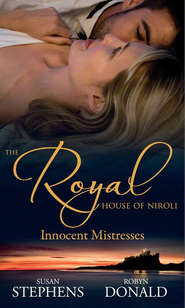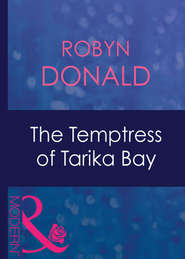По всем вопросам обращайтесь на: info@litportal.ru
(©) 2003-2024.
✖
The Final Proposal
Автор
Год написания книги
2018
Настройки чтения
Размер шрифта
Высота строк
Поля
Back at home, she took off her make-up before sitting on the side of the bed with Anet’s present in her lap. She had been astounded when she’d opened it, because the tiny painting on ivory had been given to Anet by mutual friends barely a year before.
Even the note hadn’t allayed her surprise. Anet had written:
Dearest Jan
I hope you have a wonderful birthday. I’m sorry we won’t be there—I always hate missing your party, the best of the year! This is our present. Yes, I know Olivia and Drake gave the portrait to me, but it was always with the proviso that I had to hand her on sooner or later. She’s ready to leave now, and I want you to have her. Don’t worry about her; she has the ability to keep herself out of trouble. Jan, be happy.
Jan tilted the severe wooden frame so that the light illuminated the pretty face. It was exquisite work, done by a master. Fresh as though she were not at least two hundred years old, the woman gazed serenely out at the world, her delicately fine features set in an expression of confident assurance.
‘I wonder just what she means when she says you’re ready to leave now,’ Jan murmured. ‘I wish you could tell me. I’ll look after you carefully, and when Anet comes back I’ll ask her why she was so cryptic.’ Carefully, she steadied the wooden frame and put it on her dressing table.
Two weeks later Jan was ushered into a solicitor’s office in the city. Holding out her hand, she said, ‘Mr Gates? I’m Jan Carruthers.’
He was a well-tailored, middle-aged man, with shrewd dark eyes and a mouth clamped shut on secrets. ‘How do you do, Ms Carruthers,’ he said neutrally. ‘Actually, I think that legally your surname is Morrison, is it not?’
‘No,’ she said a little stiffly. ‘My stepfather adopted me.’
‘I see.’
‘But my birth father was Hugo Morrison.’
He nodded. ‘Do sit down, Ms Carruthers,’ he said, and gestured to a chair. He waited until she was seated before saying smoothly, ‘Thank you for responding so promptly to my letter. You have your birth certificate?’
‘I have my shortened adoption one,’ she said, handing it over. ‘I can write away and get a copy of the one with my father’s name on it if you want it.’
‘It might be a good idea, but this will do for the moment.’ He looked at the document, then passed it back to her, saying, ‘Ms Carruthers, are you aware that you had a paternal grandfather—your birth father’s father?’
‘Yes,’ she said, feeling something chilly take up residence in the pit of her stomach. ‘Fergus Morrison. He went to Australia after my father’s death.’
‘He returned to New Zealand about fifteen years ago,’ he said.
Astonishment raised her voice. ‘Did he?’
‘Yes.’ He shuffled the papers on his desk a moment before saying, ‘He saw you at some function a few years ago.’
She felt the colour leach from her face. ‘Why didn’t he speak to me?’ she asked numbly.
‘I gather he thought he might not be welcome,’ he said, watching her with keen interest.
‘He might have tried to find out.’
‘I’m afraid I don’t know what his reasons were for keeping his distance. However, he made this will after he’d seen you.’
He paused, but she’d already guessed what he was going to say. She’d never have thought that it could hurt so much.
‘Ms Carruthers, your grandfather died a year ago. He wanted his estate wound up before you were contacted. That has now been done, leaving money and a hundred acres of land some hundred or so miles north of Whangarei, in Northland. As you are your grandfather’s sole beneficiary, it is yours.’
She shook her head. ‘I don’t want it,’ she said. Her voice sounded odd, as though she had a severe cold.
‘There is no one else.’ He was firm. ‘If you don’t accept it, it will be sold and everything will go into the Consolidated Fund. There is, however, a condition.’
‘What?’ she asked warily.
He picked out a piece of paper. ‘There is a house on the property. He wanted you to stay there for a month before you decide what to do.’
‘That’s impossible. I have a business to run.’
‘You have a year’s grace. After you’ve fulfilled his wish you can do what you like with the property.’ He looked at her with something like compassion in those cautious eyes. ‘There is quite a lot of money involved, Ms Carruthers,’ he said.
‘Exactly how much?’
‘Well, the place itself is on the coast. I believe there are several beaches. People are prepared to pay a considerable amount of money for coastal property nowadays,’ he said calmly.
Slowly she asked, ‘And if I don’t stay there everything goes to the government?’
‘I’m afraid so.’
Jan thought of the centre. She could sell this unexpected inheritance and use the money to buy land closer to Auckland for a camp. Or perhaps, she thought, excitement quickening inside her, it would be suitable in itself for such an enterprise. At the very least, its sale would give the centre money to buy a van and add to the trust fund.
Compared to that, a month out of her life wasn’t much sacrifice. She’d allowed herself a fortnight’s holiday in May, and with a little shuffling she could probably take a whole month.
Instantly making up her mind, she said, ‘All right. If I decide I want this land, do I have to stay there the whole time? I mean, can I make dashes to Auckland overnight?’
‘Certainly,’ he said gravely.
She nodded. ‘And exactly where is this place?’ ‘Reasonably close to Mangonui,’ he said. ‘It’s a very scenic area. The property has frontage on Doubtless Bay.’
‘Good heavens,’ she said blankly.
‘Does that make a difference?’
‘No. No—no difference at all. You don’t happen to know who the neighbours are, do you?’
He shuffled more papers. ‘There’s only one—a Mr Kear Lannion. Well-known in the north—an excellent farmer—and, I understand, prominent in business circles both here and in Australia.’
As she went away Jan thought it was very strange that she should meet a man one week and within the next fortnight find herself committed to a month’s stay next door to him.
And she would not, she told herself, firmly squelching something that could have been an eager, forbidden anticipation, consider that it might be some sort of omen—that it might be meant.
Six weeks later she drove the MG carefully down a narrow road beside a harbour formed by the estuaries of two small rivers. Black tarmac wound ahead of her. Across an expanse of glinting water the main north road bypassed the little village of Mangonui to head for Kaitaia. She could see what was probably the peninsula where Kear lived, a hilly appendage separating the harbour from the huge, open Doubtless Bay beyond. Within the protective embrace of pohutukawa trees were tantalising glimpses of a double-storeyed house.
On the neck of the peninsula the land crouched to reveal a glimpse of kingfisher-blue sea. Somewhere on a beach below that dip stood her grandfather’s house. Inland, a vast area of hilly green farmland crumpled eventually into the foothills of a high bush-covered peak.
By some quirk of settlement the only access to her grandfather’s land was across Kear Lannion’s property.
‘That’s odd, surely?’ she’d said to her stepfather, before he and Cynthia had left for a holiday in Fiji.
‘Very,’ he’d answered drily. ‘I imagine there’s some form of easement across Lannion’s land.’











